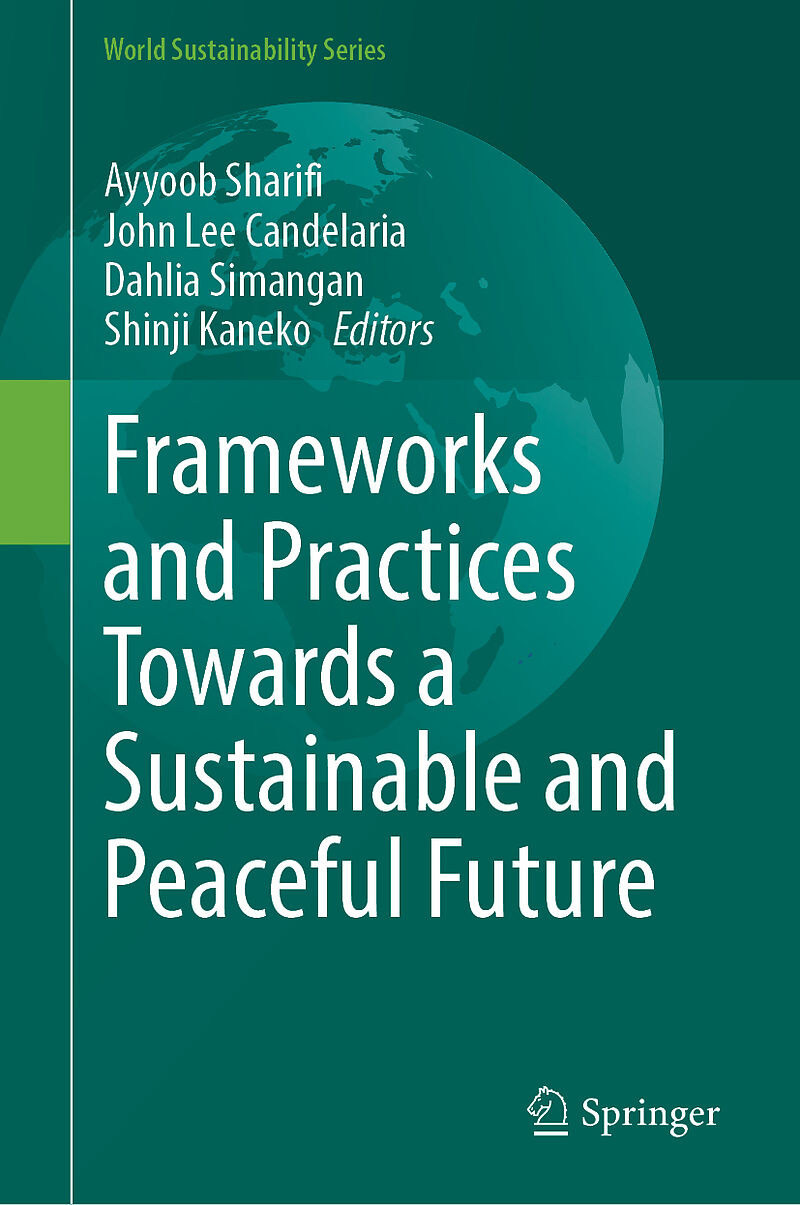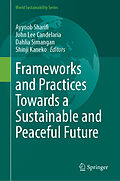

Frameworks and Practices Towards a Sustainable and Peaceful Future
Beschreibung
This edited volume examines pathways toward achieving peaceful and sustainable futures, drawing from diverse case studies and conceptual frameworks. As the fourth in a well-received series, it builds upon established research while addressing the practical co...Format auswählen
- Fester EinbandCHF 209.15
Wird oft zusammen gekauft
Andere Kunden kauften auch
Beschreibung
This edited volume examines pathways toward achieving peaceful and sustainable futures, drawing from diverse case studies and conceptual frameworks. As the fourth in a well-received series, it builds upon established research while addressing the practical connections between peace and sustainability. The theme of the book was deeply examined and thoughtfully interrogated at the NERPS 2025 conference in Manila, where researchers and practitioners gathered to discuss these crucial intersections. At the heart of this book is the matter of how environmental sustainability and peace support each other a connection that deserves greater attention in both research and policy. The collection compiles global perspectives, providing empirical evidence that integrated approaches to peace and sustainability yield more effective outcomes than when these objectives are pursued independently. Contributors analyze various initiatives across educational systems, governance structures, community organizations, and technological innovations to identify both challenges and opportunities for progress. By examining real-world examples, the volume offers insights into successful interventions as well as persistent barriers. This work provides researchers, policymakers, and practitioners with knowledge that can help address interconnected challenges of conflict and environmental change.
Autorentext
Ayyoob Sharifi is Professor at The IDEC Institute, Hiroshima University. He is also a core member of the Network for Education and Research on Peace and Sustainability (NERPS). His research is mainly focused on climate change mitigation and adaptation. Ayyoob actively contributes to global change research programs, such as the Future Earth, and has served as a lead author for the Sixth Assessment Report (AR6) of the Intergovernmental Panel on Climate Change (IPCC). The ultimate goal of his education and research activities is to inform actions toward building sustainable and peaceful communities.
John Lee Candelaria is Assistant Professor at the Graduate School of Humanities and Social Sciences, Hiroshima University and a research fellow of the Network for Education and Research on Peace and Sustainability (NERPS). He holds a PhD from Hiroshima University and a bachelor s and master s degrees in History from the University of the Philippines Diliman. He specializes in peace and conflict research, with a scholarly focus encompassing war propaganda, heritage and memory politics, peace processes, and the critical intersection of peace and sustainability, with particular emphasis on the Philippines and Southeast Asia. His most recent publication is the book, War Memorialization and Nation-Building in Twentieth-Century Southeast Asia (Routledge, 2025).
Dahlia Simangan is Associate Professor at Hiroshima University s Graduate School of Humanities and Social Sciences. She is a former Kanagawa University JSPS Postdoctoral Research Fellow (nominated by the United Nations University-Centre for Policy Research in Tokyo). She obtained her PhD in International, Political and Strategic Studies from the Australian National University, MA in International Relations from the International University of Japan, and her BA in Sociology from the University of the Philippines, Diliman. Her research interest in peace and conflict studies includes topics on post-conflict peacebuilding, the peace-sustainability nexus, and international relations in the Anthropocene.
Shinji Kaneko is the Executive Vice President for Global Initiatives and a Professor at the Graduate School of Humanities and Social Science at Hiroshima University. He graduated from the School of Engineering at Kyushu University, majoring in water engineering (Dr. of Engineering). Immediately after the completion of his doctoral program, he joined the Institute for Global Environmental Strategies (IGES) in 1999 as a researcher and conducted research on urban climate policy in Asian megacities for three years. He also worked at global Change System for Analysis, Research and Training (START) as a Research Fellow for three years from 2005. In 2018, he was appointed as the Director of Network for Education and Research on Peace and Sustainability (NERPS) at Hiroshima University. He has conducted numerous policy research on natural resources, energy, and the environment in developing countries.
Inhalt
Frameworks and Practices Towards a Sustainable and Peaceful Future.- Part I: Knowledge and Learning Pathways.- Collective Learning in ASEAN's Climate Governance Networks: The Adoption of the 2018 ASEAN Guidelines for Agroforestry Development.- Mapping Global Trends in Creative Imagination Research for Quality Education: A Bibliometric Analysis.- Artivism for Sustainability: The Pedagogical Potential of Artivism.- Part II: Community-Led Pathways.- Youth at the Roots of Peace: Education, Environment and Gender as an Approach to Peacebuilding.- From "Sirmata" to Reality: A Climate-Smart Agriculture Adoption Success in Benito Soliven, Philippines.- Everyday Peace in Multicultural Neighborhoods: Immigrant Strategies from an Agonistic Peace Perspective.- Part III: Institutional and Governance Pathways.- Incorporating Policy Process Analysis into Environmental Peacebuilding: The Coupling of Environmental and Foreign Policies in Soviet Japanese Relations.- Access to Justice as a Guarantee of Rights and Sustainable Development: The Case of Argentina.- Institutional Dynamics and Policy Directions for Official Development Assistance and Public-Private Partnership Urban Transport Financing in Metro Manila, Philippines.- Part IV: Environmental Security Pathways.- Climate and Land Use Impacts on Ecosystem Services Supporting Food Security in Siem Reap Province, Cambodia.- Microplastics Ingestion by Fish Species in Thailand's Aquatic Ecosystems.- Part V: Contested Pathways and Critical Perspectives.- Power Struggle & Conflict Over Urban Space in Nepal: Implications for Sustainable Peace.- Does Consumer Animosity Lead to Peace and Sustainability? The Case of Filipino Students as Consumers Amidst the Russia-Ukraine War.- Foreign Aid and Failed Peace Dividends: A Critical Study of Development Aid in the Bangsamoro, Philippines.
